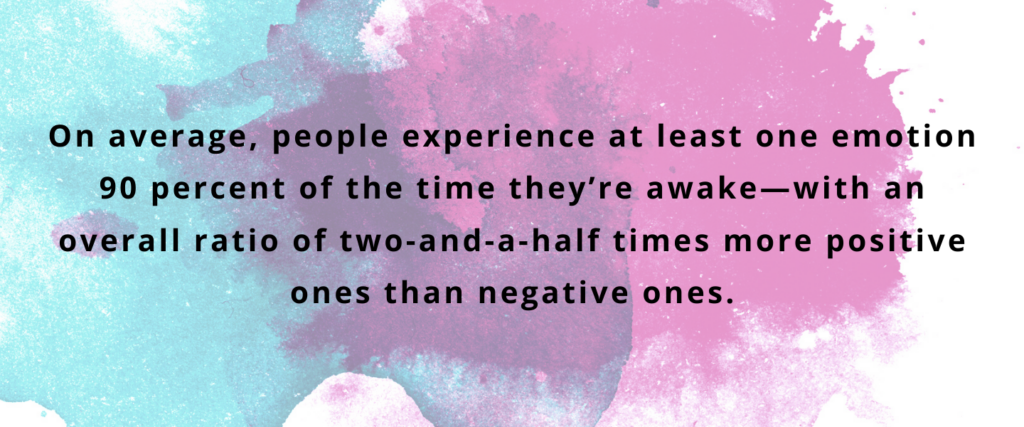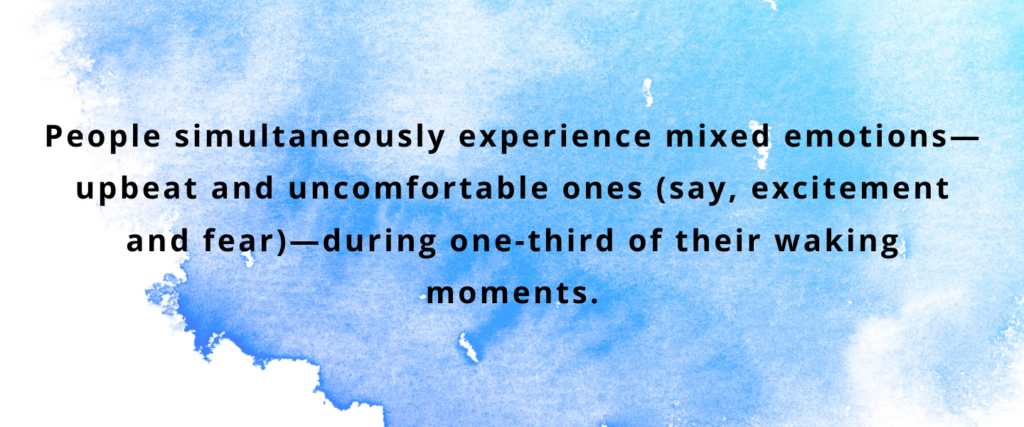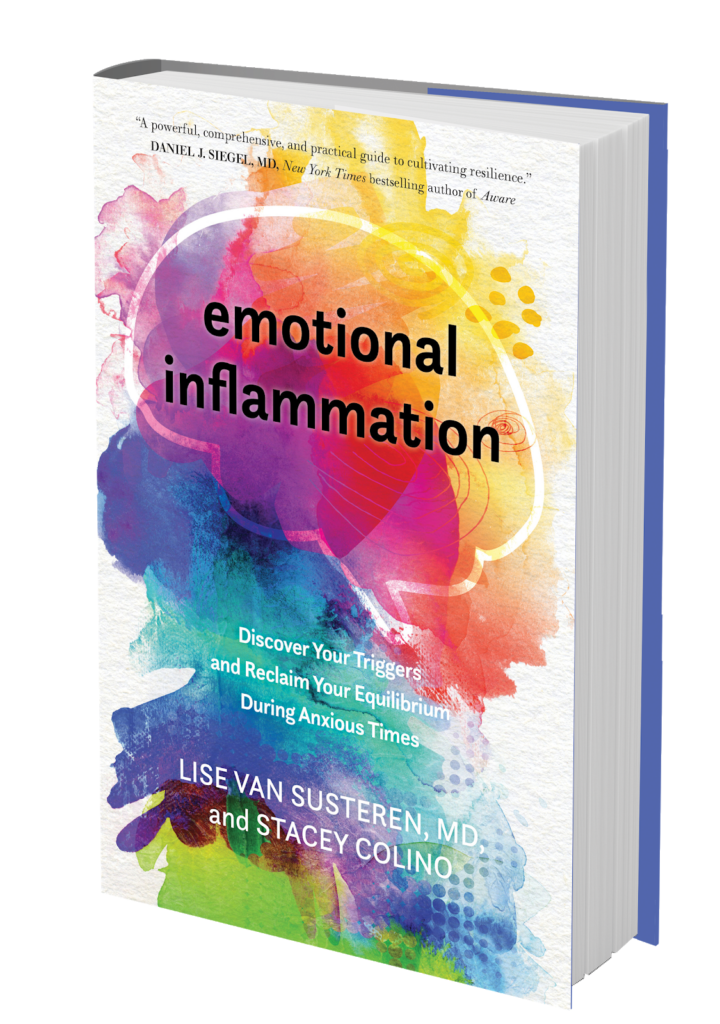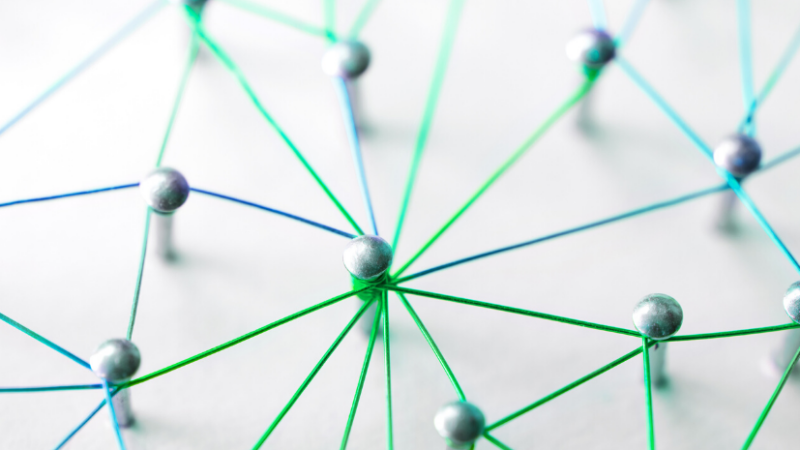-
E117: The Real Work: Letting Go from Within
Michael Singer — October 2, 2025
True spirituality isn’t about mystical experiences or lofty ideals—it’s about honestly facing...
-
Once More: Reflections on Reincarnation and the Gap Between Lives
Tami Simon — September 26, 2025
In this special reflection episode of Insights at the Edge host Tami Simon looks back on her...
-
Honey Tasting Meditation: Build Your Relationship with Sweetness
There is a saying that goes “hurt people hurt people.” I believe this to be true. We have been...
Written by:
Amy Burtaine, Michelle Cassandra Johnson
-
Many Voices, One Journey
The Sounds True Blog
Insights, reflections, and practices from Sounds True teachers, authors, staff, and more. Have a look—to find some inspiration and wisdom for uplifting your day.
Standing Together, and Stepping Up
Written By:
Tami Simon -
The Michael Singer Podcast
Your Highest Intention: Self-Realization
Michael Singer discusses intention—"perhaps the deepest thing we can talk about"—and the path to self-realization.
This Week:
E116: Doing the Best You Can: The Path to Liberation -
Many Voices, One Journey
The Sounds True Blog
Insights, reflections, and practices from Sounds True teachers, authors, staff, and more. Have a look—to find some inspiration and wisdom for uplifting your day.
Take Your Inner Child on Playdates
Written By:
Megan Sherer
600 Podcasts and Counting...
Subscribe to Insights at the Edge to hear all of Tami's interviews (transcripts available, too!), featuring Eckhart Tolle, Caroline Myss, Tara Brach, Jack Kornfield, Adyashanti, and many more.
Most Recent
Yongey Mingyur Rinpoche: In Love with the World
Can you recall an experience from your past that felt simply awful at the time, but you now see as something positive and necessary for your personal growth? When we’re in the midst of a painful situation, it’s natural for us to resist, complain, or wish it would just go away. The last thing we want to hear from someone is, “Be grateful for this learning opportunity!” In this podcast, Tami Simon speaks with world-renowned meditation teacher Yongey Mingyur Rinpoche about his book In Love with the World, and how we can begin to transform suffering into a pathway to compassion and connection.
Give a listen for some profound insights on: adding wood to the fire, or turning obstacles into opportunities; thinking outside of the box for solutions; impermanence; making friends with life’s ups and downs; challenging yourself to grow and testing your level of realization in the real world; uncovering the fundamental qualities of awareness, love, and compassion within you; cultivating courage; bardo practice and meditating on our mortality; discovering the ground of luminosity; the four-step process of offering, dedication, intention, and motivation; emptiness, or “unborn awareness”; how acceptance leads to freedom; maintaining confidence and trust during times of uncertainty or despair; and more.
Note: This episode originally aired on Sounds True One, where these special episodes of Insights at the Edge are available to watch live on video and with exclusive access to Q&As with our guests. Learn more at join.soundstrue.com.
E42: Why We Suffer: A Spiritual Perspective on Problem...
Why do people experience so many problems in life? If you look objectively, you will see that problems arise because we have deeply ingrained preferences about how life should unfold. These manifest as desires and fears that are rooted in our unresolved experiences from the past. True freedom and joy can only be achieved by letting go of this stored negativity and embracing life as it unfolds. Ultimately, fulfillment comes not from controlling external circumstances but from inner alignment and openness to life’s flow.
For more information, go to michaelsingerpodcast.com.
© Sounds True Inc. Episodes: © 2025 Michael A. Singer. All Rights Reserved.
How to Cope with Shame, the Master Emotion
Shame has been called the master emotion because it takes over our bodies and our minds. It can freeze our nervous system. It can place us in a fog, unable to seek help, reassess a situation or reassess what is really going on. Shame defeats our ability to reflect on ourselves, get some support, and move on. Shame can be overwhelming, but if we can look at it clearly and catch it before it takes over, we can cope with it and create conditions that can transform it from an enemy into a friend.
This is not academic to us. We are both well-acquainted with the experience of shame. Co-author of Embracing Shame, Sheila Rubin has been researching shame since she was a shy five-year-old. “In my twenties, I remember having a new job and being so worried about being late for a first meeting that I showed up early and accidentally interrupted a lunch that was happening in the room,” notes Sheila. “I froze in embarrassment. I remember the shame voice saying to me: ‘What’s wrong with me? Maybe they shouldn’t hire me because something is wrong with me.’ Fortunately, while I was holding the door knob, frozen in shame, someone opened the door and invited me in with kindness.”
Embracing Shame co-author, Bret Lyon, remembers that, as a kid, when the gym teacher blew the whistle and said to pick teams. Everyone else was picked first. He still remembers trying to pretend it didn’t matter while he felt like dying inside.
One client accepted extra work even though he does not want to work weekends because he wants to be liked and couldn’t say “no” because it would be embarrassing.
Another client spoke of shame seeping into her mind about the changes in her body since giving birth. She is happy to be a mother, but the changes in her body and the inner dialogue in her mind keep her in shame circles. The differences between how she experienced her body and how she feels now is shame.
Our inner conversations may say a variety of unhelpful things. For many of us, it is the voice of not being good enough. Or we might feel like an imposter. If our partner or boss says that we made a mistake, that may be a trigger for a shame attack.
Here are some clues to know when shame may be operating in your mind and body:
Thoughts: There’s something wrong with me and I don’t want anyone to know. Maybe I am an imposter and I need to hide.
Sensations: Feeling shy, face flushed, brain can freeze, difficulty having a conversation.
Reactions: Embarrassed, going blank, blaming others, using activity to numb, withdrawing. Not able to write or think clearly and not know why.
Coping with shame
If, instead of letting shame take over, we can be with and observe our shame, we can actually begin to learn something from it. We can begin to transform shame from a toxic disruptor to a useful informant, from a devastating foe to a useful ally.
Here are a few experiments to try when you notice shame coming up. Instead of putting yourself down, try one, then reflect on the results and write them down in a journal or in your notes app:
Be kind to yourself. Say something kind to yourself to ease the shame.
Pause and take a breath. Pausing for even a few seconds or one minute can offer a new perspective. How might this allow you to set a new boundary or reframe your story in a healthier way?
Set boundaries. Is there an extra shift you cannot take this week? Can you say stop or politely decline?
Name your feelings. Notice what didn’t feel good in your reaction. Can you talk about what you’re feeling in a different way?
Ground yourself. Tap your feet or feel the earth under your feet.
Get support. Talk to a friend who is kind and who can hear your feelings.
Spend time in nature. Take a few minutes to bathe in nature to refresh and replenish.
Understand that change happens slowly. Talk back to the shame inside yourself for a bit and find if the shame can be a little less toxic. Even a small shift or change can help you move forward rather than staying stuck.
Being friends with your shame can begin to change yourself and your life. When toxic shame lifts there can be access to creativity and new doors can open. The weight of heaviness can be put down and we can have new hope for the future. The reason we do this work is so others can find hope when there is shame and they can transform it and heal it.

Sheila Rubin, MA, LMFT, RDT/BCT, has been researching shame since she was five years old. Along with her husband and colleague, Bret Lyon, she is a founder and codirector of the Center for Healing Shame, and cocreator of the Healing Shame–Lyon/Rubin Method. Through their popular workshops, they have taught thousands of psychotherapists, coaches, and other helping professionals across the world to more effectively identify and work with shame. Sheila is a Licensed Marriage and Family Therapist, a Registered Drama Therapist, and has taught at JFK University and CIIS, as well as being the eating disorder specialist at a hospital and directing Embodied Life Stories performances. For more, visit healingshame.com.
Bret Lyon, PhD, SEP has devoted almost two decades of his life to healing shame. Along with his wife and colleague, Sheila Rubin, he is a founder and codirector of the Center for Healing Shame, and cocreator of the Healing Shame–Lyon/Rubin Method. Through their popular workshops, they have taught thousands of psychotherapists, coaches, and other helping professionals across the world how to more effectively identify and work with shame. Bret holds doctorates in both psychology and drama and has taught at Tufts University, Pomona College, and the American Academy of Dramatic Arts, as well as writing and directing plays in regional theater and off-off Broadway. For more, visit healingshame.com.

Customer Favorites
E51: Waking Up: How to Stop Living in the Past and Fin...
Seeking external solutions to make up for internal issues leads to endless struggles and suffering. But going beyond the limitations of past experiences and attachments leads to inner transformation and spiritual evolution. By releasing attachments and emotional blockages, you can experience a profound state of love, joy, and freedom. Always remember, true fulfillment is not found in external circumstances but in awakening to your higher consciousness.
For more information, go to michaelsingerpodcast.com.
© Sounds True Inc. Episodes: © 2025 Michael A. Singer. All Rights Reserved.
The Power of Mapping Your Emotions
It’s in everyone’s best interest to learn to remove the emotional blinders and identify emotions accurately, both the uncomfortable and the upbeat ones. After all, unpleasant emotions are normal and natural, a fundamental part of being human. Emotions fluctuate on a daily basis, often several times in a given day. If you didn’t experience negative feelings now and then, the positive ones wouldn’t be as noteworthy or joyful; your emotional life would likely be unnaturally narrow. You would also be deprived of the opportunity to glean important insights into yourself. Feelings, both the good and the bad, are silent messages, alerting you to pay attention to something in your personal or professional life, in your behavior, or in the world around you.
Instead of separating emotions into categories such as good or bad, positive or negative, happy or sad, it’s better to view all your emotions as useful information, as “evolutionarily evolved responses that are uniquely appropriate to specific situations,” says Karla McLaren, MEd, author of The Language of Emotions. “When you stop valencing, you’ll learn to empathically respond to what’s actually going on—and you’ll learn how to observe emotions without demonizing them or glorifying them.”

Being able to recognize and express what you’re feeling helps you better understand yourself (leading to greater self-knowledge); validate your emotions and tend to your own emotional needs; and take steps to address those feelings directly by communicating and responding to them effectively. Having emotional self-awareness can motivate you to make healthy changes in your life, take action to improve the world around you, and become more psychologically resilient—that is, better able to cope with crises and rebound from setbacks.
Learning to Unpack Your Emotions
For some people, engaging in free association can clear the cobwebs from their minds, almost like opening the cellar door to a musty basement and letting in light and fresh air. To do this, you might take a break and consider how you’re feeling about what you’re doing, reading, seeing, or thinking every few hours throughout the day. If a general word comes to mind—such as stressed, anxious, or angry—dig deeper and ask yourself what other emotions you might be feeling (maybe fear or annoyance) along with it. If you do this out loud in unedited, private moments, you might find yourself blurting out what you’re really thinking or feeling, revealing the emotions that are taking a lot of energy to keep inside. This is really about unpacking your suitcase of feelings, or untangling the knot of emotions that is taking up space inside you.

When you think about this in the abstract, it can be hard to pinpoint how you’re feeling. You may just see a swirling mass of a feeling quality such as “dread” or “foreboding” rather than recognizing the specific emotions you feel. To get to the root of your feelings, spend five minutes looking at the word cloud below—no more than five so that you don’t have time to filter your responses—and choose the emotions that resonate with your mood-state lately.

If reviewing these words evokes other feelings for you or if words or phrases that apply to you were not on this word cloud, jot these down in the blank word cloud that follows. Give yourself another five minutes to think about your recent state of mind and jot down phrases, images, or words that occur to you. This is your opportunity to personalize it without any limits or restrictions. If you feel stymied or draw a blank initially, think about your recent responses to current events or situations in your personal life or on the world stage. Try to be as honest as you can by focusing on how you’re really feeling when no one is watching—free-associate without judging, censoring, or revising what you write down.
Once you’ve finished your list, look at the order of the words you wrote down: Did they progress from all negative to increasingly hopeful? Do they portray an internal tension or friction in going back and forth between various feelings? If all the words are positive, consider the possibility that you may be in some degree of denial, focusing only on the window dressing rather than the emotions that lie beneath the surface. Also, consider this: Is there a pattern of shallow, visceral reactions that came out initially, followed by more complex thoughts and feelings? If so, think about whether you’re giving yourself enough time in your life to reflect. If you came out with highly intellectualized words or phrases first, it might suggest that you put on a bit of a facade when engaging with the world, and you might benefit from striving for a deeper engagement or familiarity with your emotions.
This is an excerpt from Emotional Inflammation: Discover Your Triggers and Reclaim Your Equilibrium During Anxious Times by Lise Van Susteren, MD, and Stacey Colino.
Buy your copy of Emotional Inflammation at your favorite bookseller!
Sounds True | Amazon | Barnes & Noble | Bookshop

E48: Spiritual Awakening: Transcending Lower Self
Spiritual growth involves realizing that our lower self is the ego-driven construct that arises from past experiences, emotional reactions, and stored mental patterns. Most people live disconnected from their true self and are constantly entangled in their thoughts, emotions, and external perceptions. True spirituality is the realization that one’s higher self is the consciousness observing these transient experiences, not the experiences themselves. This leads to liberation from identification with the ego. The ultimate goal is to return to the seat of consciousness and achieve a state of peace, love, and unity while engaging with life as a fully conscious, nonreactive being.
For more information, go to michaelsingerpodcast.com.
© Sounds True Inc. Episodes: © 2025 Michael A. Singer. All Rights Reserved.







